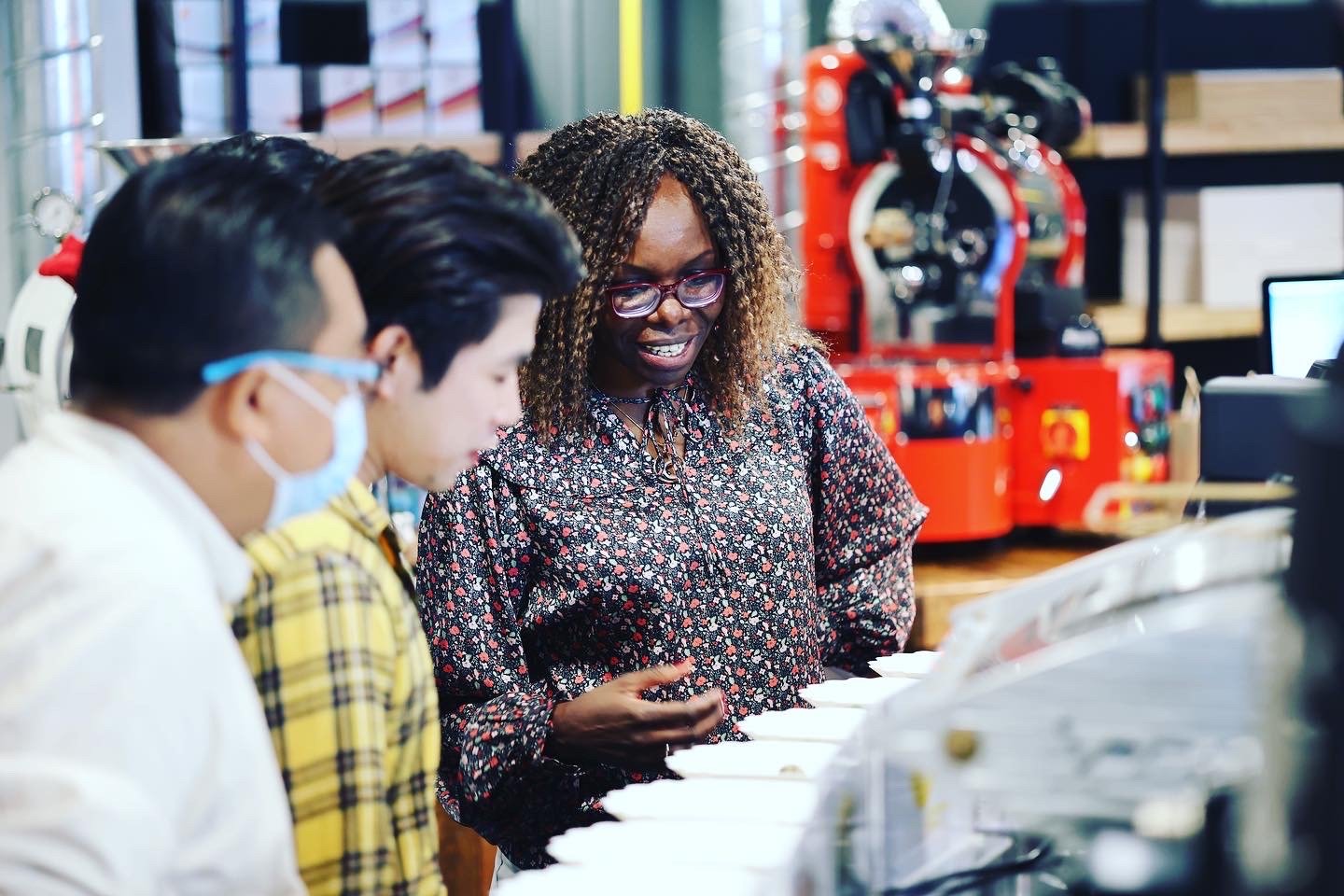2023
Tea Authenticity - Professor Chris Elliott, Dr. Di Wu and Dr. Terry McGrat
Growing Tea in England. A truly unexpected journey - Jo Harper
A new generation of speciality tea growers from Myanmar - Joyce Maina, Lin, Mynt Mynt, San Min Tun
The Importance of Water Quality in Tea - Christos Gkosdis
People who make tea: Women from Satemwa in Malawi who make tea - Alice and Mary, and Alexander Kay
Nepal's re-evolution in tea: How young tea makers are transforming the Nepali tea industry - Nishchal Banskota
Tea Authenticity
ESTA signed a collaboration agreement with Queen’s University in Belfast and Bia Analytical to work together on a programme to test the authentication of teas where there may be issues of adulteration or provenance.
ESTA will be responsible for gathering samples and QUB and BA have vast experience and amazing laboratory facilities to enable this programme.
The webinar explains the importance of the programme and exactly how it will work.
The webinar is delivered by Professor Chris Elliott, Dr. Di Wu and Dr. Terry McGrath.
Professor Chris Elliott, PhD, FRSC, FRSB, MRIA, OBE
Chris is Professor of Food Safety and founder of the Institute for Global Food Security at Queen’s University Belfast. He has published more than 500 peer review articles on food safety and authenticity. Protecting the integrity of the food supply chain from fraud is a key topic and Chris led the independent review of Britain’s food system following the 2013 horsemeat scandal. In 2017 Chris was awarded the Royal Society of Chemistry Theophilus Redwood Prize and was awarded an OBE. He was elected a member of the Royal Irish Academy in 2020.
Di Wu, Lecturer, The Institute for Global Food Security, Queen’s University of Belfast, U.K.
Dr. Wu received his PhD. in Cell Biology from Xiamen University, co-trained postdoctoral researcher of Tsinghua University and Yangtze Delta Region Institute of Tsinghua University, Zhejiang. He has joined the IGFS team at Queen's University of Belfast (QUB) as Newton International Fellow of Royal Society since 2020 and recently become a Lecturer of the school. His main research now focuses on implementation of targeted and non-targeted fingerprinting tools (spectroscopy and mass spectrometry) in food integrity studies (Food authenticity and alternative proteins) and combined with machine learning algorisms. He was involved in multiple national key R&D programs and international collaboration frameworks including Natural Science Foundation of China, the Royal Society, the Horizon Europe projects and acting as the lead and of the global tea authenticity project. He is currently member of the Codex Alimentarius Commission standard revision group over Mycotoxins and U.S. Pharmacopeial Convention’s (USP) Dietary Protein Committee.
Terry McGrath is a founder and CTO of Bia Analytical.
Terry is passionate about detecting food fraud. Before joining the company full time, Terry was a Research Fellow in the Institute for Global Food Security at Queen’s University Belfast where his latest research was developing spectroscopic methods, both laboratory based and field deployable, in conjunction with chemometric models to detect food fraud. This research aimed at supporting the food industry to detect food fraud/adulteration in a way that would allow them to increase efficiency and protect consumers from unsafe food. Terry has 25 years’ experience working on food safety, security and authenticity from both a commercial and academic perspective. From 1997-2001 Terry was employed by Precision Analysis, an ISO 17025 accredited laboratory, where he was involved in agri-food testing and development of the laboratory portfolio of accredited methods as well as the development, maintenance and transfer of near Infrared spectroscopic models for proximate analysis of animal feeds and raw materials. From 2001 to 2009 he was employed by a newly launched university start-up company where he was involved in new product development including method validation, sample preparation, project management and marketing activities. Terry returned to university in 2009 to undertake his PhD and remained a Research Fellow since completing his thesis in 2012 until he joined Bia Analytical.
Growing Tea in England - A truly unexpected journey
Jo Harper of Dartmoor Estate Tea in the UK, tells his story of challenges, growth and success over the past eight years.
“In the presentation I will discuss how we entered the world of tea growing 8 years ago and now find that in a wonderful way it fills our lives, with tea dominating our conversations from the first words we speak in the morning - to the last at night!
With no ambitions or expectations we have allowed the tea plants to carve their own path and direct us towards unknown destinations and exciting encounters...one of which leads us to presenting this webinar!
Our journey has been one of many trials and tribulations, but undoubtedly it has been one of the most enriching experiences of our lives.”
Jo Harper
A new generation of speciality tea growers from Myanmar
This webinar features a new generation of speciality tea growers from Myanmar. They are young, intelligent and all round impressive.
Meet the millennial and Gen Z producers bringing innovation to these ancient tea lands.
Come and discover outstanding speciality teas from the land of Myanmar.
The webinar will be presented by our own Joyce Maina who will be joined by tea producers Lin and Mynt Mynt from Myanmar, as well as San Min Tun, Association Coordinator of the Myanmar Tea Association.
The Importance of Water Quality in Tea
Newly published White Paper on water quality and tea
The webinar, on 22nd March, World Water Day, is delivered by our Founder Member Christos Gkosdis who is introducing our newly published White Paper on water quality and tea, produced in collaboration with Brita Professional.
With 99.9% of tea being water, it is imperative to understand water’s role and define the water quality required to achieve the full flavour potential of each tea or botanical.
People who make tea: Women from Satemwa in Malawi who make tea
This webinar is the second on our series on people who make tea.
As in many agricultural industries, tea relies on a female workforce. Many women who work in tea are pluckers, a labor-intensive job. It is rare to see women occupying managerial positions. In Malawi it is estimated that 30% of all tea workers are women. On Satemwa Tea Estates in Malawi we have always tried to play a pioneering role in terms of gender equality. Satemwa was the first tea estate in Malawi employing women. Over the years Satemwa implemented a strong gender policy empowering women in different positions in our company. During this ESTA webinar Alice and Mary – 2 strong Malawian leading women in tea – will share some of their experiences how it is to work as a women in tea in Malawi. Alexander Kay from Satemwa Tea Estates in Malawi will share some very practical examples about the Satemwa gender policy. An informal and open interview giving some insights into what is behind your cup of tea.
Nepal's re-evolution in tea: How young tea makers are transforming the Nepali tea industry by Nishchal Banskota of Nepal Teas.
Nepali teas have always been compared to its "cousin" Darjeeling teas, learn how tea makers as young as 22 years old are disrupting that stereotype and creating an identity for themselves. In this session, your host Nish, a 2nd generation tea producer from Nepal, will introduce you to 5 young tea makers of Nepal and the various types of teas that they are making. You'll understand what tea really means to these young tea makers and why they are not afraid of the wildest experimentation.










